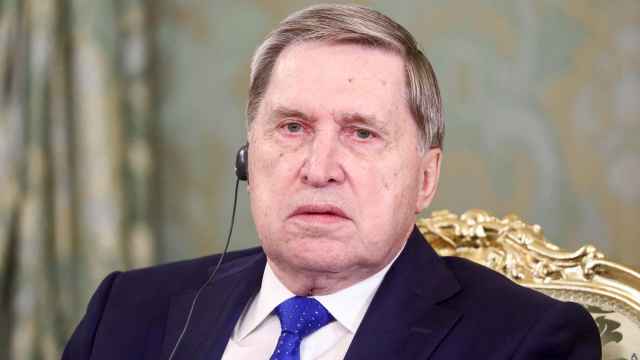Ukrainian Justice Minister Pavel Petrenko said that the country's parliament will soon adopt laws granting the legal instruments of self-determination to the minority Crimean Tatar community on Ukraine's disputed southern peninsula.
The Ukrainian minister's comments, reported by Interfax, came on the same day that President Vladimir Putin said that Russia, which signed an agreement annexing Crimea on Tuesday, would take all necessary measures to rehabilitate Crimean Tatars.
Petrenko said that the law, which would give the ethnic group the right to decide its own legal status, was in the final stages of its preparation and would safeguard "the historical will of the people who live in the Crimea and have all the legal rights historical rights to that land."
Speaking in front of assembled Russian lawmakers before signing the annexation agreement, Putin also stressed that he wanted to "restore the rights" of the Crimean Tatars as well as their "good name."
Crimean Tatars had previously been deported from their homeland in Crimea to Central Asia en masse by Stalin, allegedly for cooperating with Nazis during World War II.
Putin said that the Muslim ethnic group had suffered injustice and that the roughly 300,000 Crimean Tatars who had returned to their land since the late 1980s and make up about 12 percent of the area's population give the region a "unique combination of cultures and traditions from different peoples."
Senior Crimean Tatar figures such as Mustafa Dzhemilev, former head of the group's unofficial parliament, have denounced Sunday's referendum as illegitimate. The 70-year-old statesman told Reuters in an interview that he feared new attacks on Crimean Tatars if the region became part of Russia, saying that "Crimean Tatars systematically supported Ukraine's territorial integrity and spoke out against pro-Russian separatism, so in these conditions we will probably be the main target."
Red crosses began to appear on the group's buildings in the largely Crimean Tatar city of Bakhchysarai during the run up to the referendum, a sign telling them to leave the territory.
Media reports said that many Crimean Tatars, perhaps listening to the suggestion of Dzhemilev, boycotted the vote, which saw more than 96 percent of ballots cast for union with Russia.
A Message from The Moscow Times:
Dear readers,
We are facing unprecedented challenges. Russia's Prosecutor General's Office has designated The Moscow Times as an "undesirable" organization, criminalizing our work and putting our staff at risk of prosecution. This follows our earlier unjust labeling as a "foreign agent."
These actions are direct attempts to silence independent journalism in Russia. The authorities claim our work "discredits the decisions of the Russian leadership." We see things differently: we strive to provide accurate, unbiased reporting on Russia.
We, the journalists of The Moscow Times, refuse to be silenced. But to continue our work, we need your help.
Your support, no matter how small, makes a world of difference. If you can, please support us monthly starting from just $2. It's quick to set up, and every contribution makes a significant impact.
By supporting The Moscow Times, you're defending open, independent journalism in the face of repression. Thank you for standing with us.
Remind me later.





